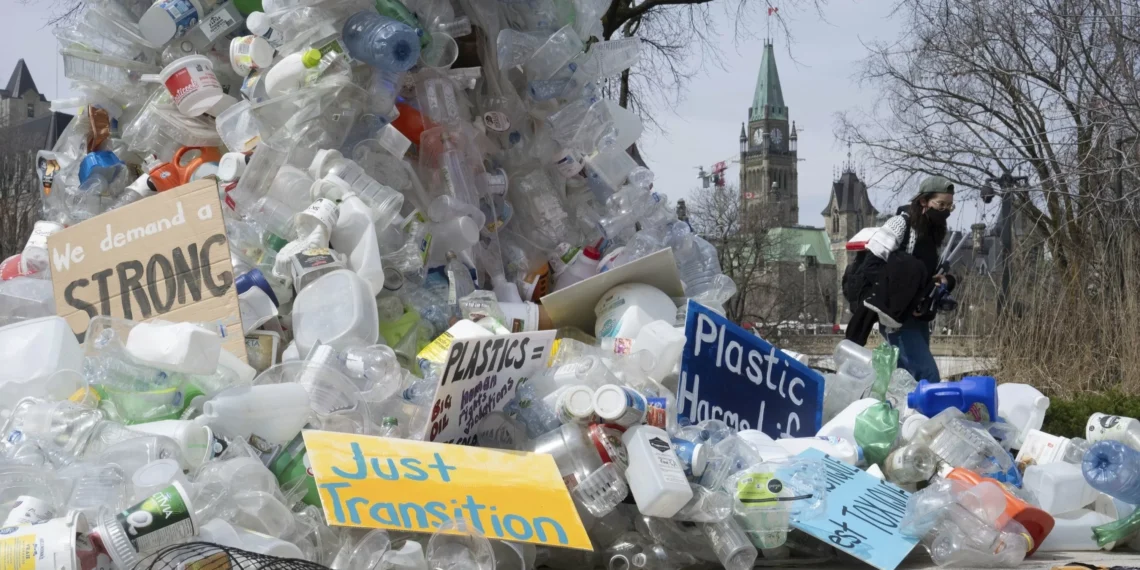The world we live in is a beautiful and diverse place, filled with stunning landscapes, unique creatures, and a vast array of natural wonders. However, as our population continues to grow and our consumption habits become increasingly unsustainable, our planet is facing a major crisis – plastic pollution.
According to a recent study, the world creates a staggering 57 million tons of plastic pollution every year. This plastic waste is not only harming our environment, but it is also finding its way into our bodies, posing a serious threat to our health and well-being.
From the deepest oceans to the highest mountaintops, plastic pollution has become a global issue that knows no boundaries. It is estimated that there are currently over 5 trillion pieces of plastic in our oceans, with 8 million tons more being added every year. This not only affects marine life, but it also has a ripple effect on our entire ecosystem.
Plastic pollution has also reached the most remote and pristine places on Earth. Scientists have found microplastics in the Arctic, the highest point on our planet, and even in the depths of the Mariana Trench, the deepest point in the ocean. This highlights the alarming extent of plastic pollution and its ability to spread to even the most isolated areas.
But perhaps the most concerning aspect of plastic pollution is its impact on human health. Plastic particles have been found in the air we breathe, the water we drink, and the food we eat. This means that every one of us is ingesting plastic on a daily basis, whether we are aware of it or not. This can lead to serious health problems, including hormonal imbalances, reproductive issues, and even cancer.
So how did we get to this point? The answer lies in our dependence on single-use plastic. From plastic bags and straws to water bottles and food packaging, our throwaway culture has resulted in an overwhelming amount of plastic waste. And the sad truth is that most of this plastic is not biodegradable, meaning it will remain in our environment for hundreds, if not thousands, of years.
But amidst all of this doom and gloom, there is hope. People all over the world are waking up to the devastating effects of plastic pollution and are taking action to reduce their plastic consumption. Governments and organizations are also implementing policies and initiatives to tackle this issue.
One such initiative is the global movement to ban single-use plastics. Many countries have already implemented bans on items such as plastic bags and straws, and more are following suit. This is a crucial step in reducing the amount of plastic waste that ends up in our environment.
In addition, there has been a rise in the use of biodegradable and compostable alternatives to traditional plastic products. These innovative solutions offer a more sustainable and eco-friendly option for everyday items.
But perhaps the most important change is happening at an individual level. People are becoming more conscious of their plastic consumption and are making small changes in their daily lives to reduce their plastic footprint. This can include using reusable bags, water bottles, and containers, as well as opting for products with minimal or recyclable packaging.
It is also important to properly dispose of plastic waste and participate in recycling programs. This ensures that the plastic we do use is being recycled and not ending up in our oceans and landfills.
It is heartening to see the growing awareness and action being taken to combat plastic pollution. But we must continue to push for change and hold ourselves accountable for our actions. We must also support and encourage others to join the fight against plastic pollution.
The world may create 57 million tons of plastic pollution every year, but it is up to us to make a difference. By making small changes in our daily lives and advocating for a more sustainable future, we can create a cleaner, healthier, and more beautiful world for generations to come.
In conclusion, let us remember that we are all responsible for the state of our planet. We must take action now to reduce our plastic consumption and work towards a more sustainable future. Together, we can overcome this global crisis and create a cleaner, healthier, and more beautiful world for all. Let us be the change we wish to see in the world.






